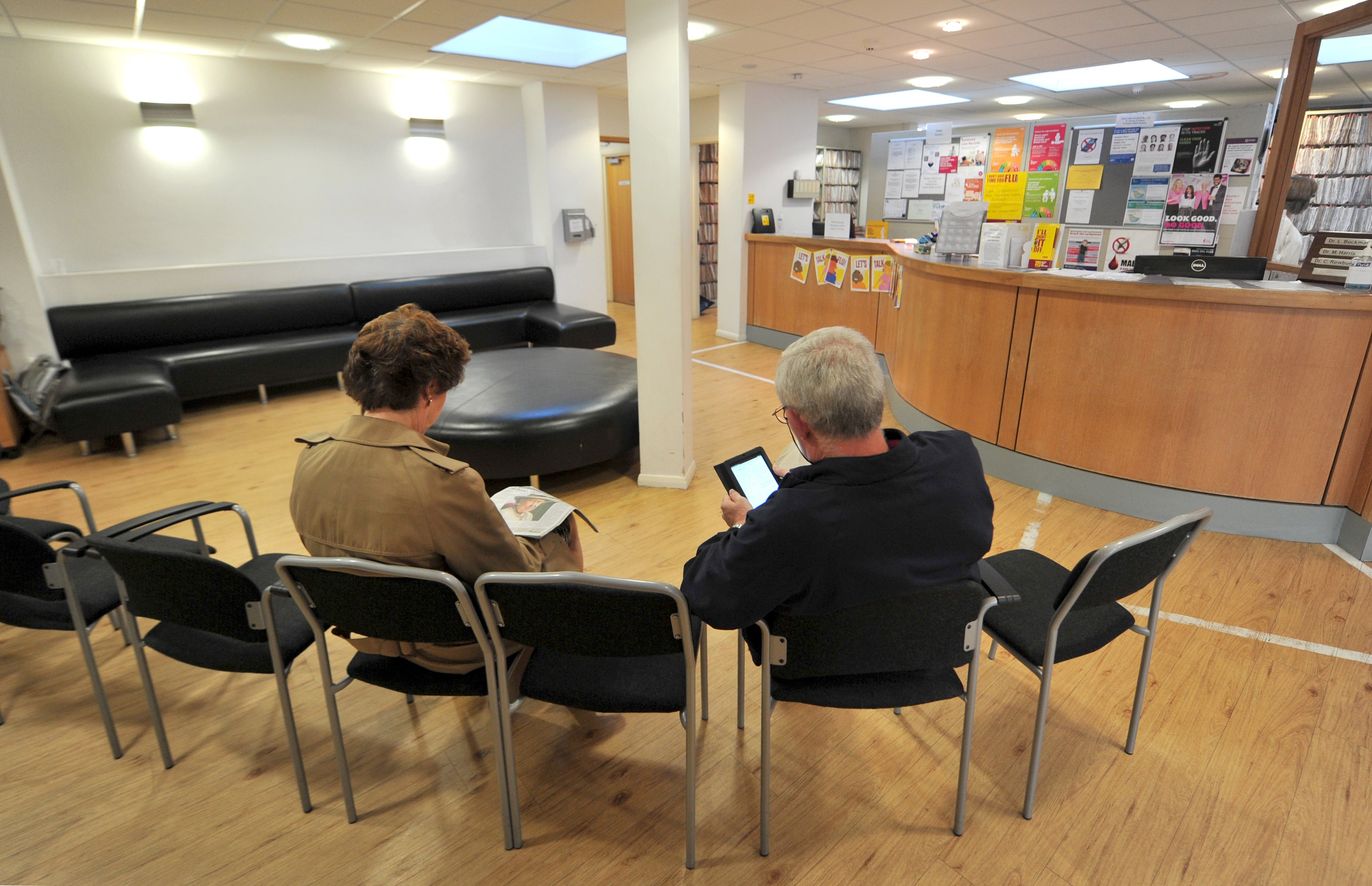Poorer areas hit by GP shortages and less funding
GPs working in the most-deprived areas of England get 7 per cent less funding per patient than those in more affluent areas

Your support helps us to tell the story
From reproductive rights to climate change to Big Tech, The Independent is on the ground when the story is developing. Whether it's investigating the financials of Elon Musk's pro-Trump PAC or producing our latest documentary, 'The A Word', which shines a light on the American women fighting for reproductive rights, we know how important it is to parse out the facts from the messaging.
At such a critical moment in US history, we need reporters on the ground. Your donation allows us to keep sending journalists to speak to both sides of the story.
The Independent is trusted by Americans across the entire political spectrum. And unlike many other quality news outlets, we choose not to lock Americans out of our reporting and analysis with paywalls. We believe quality journalism should be available to everyone, paid for by those who can afford it.
Your support makes all the difference.Poorer areas of England are being less well served by GPs who are struggling to cope with shortages of doctors and less funding per patient than those in wealthier areas, it has emerged.
In a new analysis by the Health Foundation think tank, shared with The Independent, people living in the most-deprived communities are less likely to have a GP appointment, with nurses substituting for doctors in some areas.
Experts at the Health Foundation estimated that GPs in poorer areas received about 7 per cent less money per patient than less-deprived parts of the country once the increased workload and need of patients in poorer areas were factored in.
Doctors working in the most-deprived communities will on average be responsible for the care of almost 10 per cent more patients than a GP serving patients in more affluent areas, the analysis found.
For every 100,000 people, there were 45 GPs serving the most-deprived areas, compared with almost 49 in the least-deprived areas.
Dr Rebecca Fisher, senior policy fellow at the Health Foundation and a practising GP, said: “People living in poorer areas have greater healthcare needs, but GP practices serving our most deprived communities are underfunded and under-doctored.
“If this government is serious about tackling health inequalities it has to address inequalities of provision in general practice – the front door of the NHS. That means making sure that much-needed extra GPs work in under-doctored areas, and reviewing funding for general practice to make sure that money is being allocated in proportion with need.”
The independent charity analysed GP practices between 2015-16 and 2018-19, looking at workforce data, funding and appointments. The researchers considered the data alongside information on deprived neighbourhoods, each with approximately 1,500 residents.
Once the demand from patients living in poorer areas was taken into account, practices were found to receive about £10 less funding per patient than those serving less-deprived populations.
The findings suggest that many practices in the most-deprived areas are less equipped to provide high-quality care compared with practices in the least-deprived areas, the Health Foundation said in its report.
Practices were also found to be less likely to perform well in Care Quality Commission inspections and got lower patient-satisfaction scores.
The Health Foundation added: “While practices in the most-deprived areas have fewer GPs, they have more practice nurses compared to the more affluent areas, which could be resulting in unplanned substitution of nurses for doctors to meet demand for appointments.”
In addition, a disproportionate number of GPs aged 65 or older are working in the most-deprived areas, which could make inequalities worse as they leave their roles.
The Health Foundation said that urgent action was needed to tackle the lack of doctors and the funding disparity. It warned that the poorest communities had been hardest hit by Covid-19 and could be particularly vulnerable to an economic crash.
Its report said: “People who live in more socio-economically deprived areas of England are less likely to see a GP when they have an appointment compared to people living in more affluent areas.
“They are also less likely to report being very satisfied with the overall standard of care at their practice, and on some measures, the care they do receive is likely to be of a lower quality.
“This impacts individuals (whose health needs may go unmet) and the wider health care system – with rates of emergency hospital admissions higher among both children and adults living in areas of high deprivation. The Covid-19 pandemic is likely to have increased these inequities further.”
Professor Martin Marshall, chair of the Royal College of GPs, said: “We had a desperate shortage of GPs, even before the pandemic, and the experiences over the past six months have only strengthened our case for significant funding to increase and sustain the GP workforce.
“Unfortunately, a decade of under-investment in general practice means patients often face a postcode lottery when it comes to accessing our services. This should not be the case and all patients should have access to the best possible GP care, regardless of their circumstances or where they live.”
A spokesperson for the Department of Health and Social Care said: “We remain fully committed to growing the general practice workforce, which means improving access to GP services across England. GP trainee numbers have risen for the third year running and are 15 per cent higher compared to the same point last year. We plan to expand the scheme we have in place to attract hundreds of doctors to undertake their training in hard-to-recruit areas.
“We want to increase the workforce further with thousands more doctors, physiotherapists, pharmacists and other primary care staff, to secure an extra 50 million appointments a year within the next 5 years.”



Join our commenting forum
Join thought-provoking conversations, follow other Independent readers and see their replies
4Comments